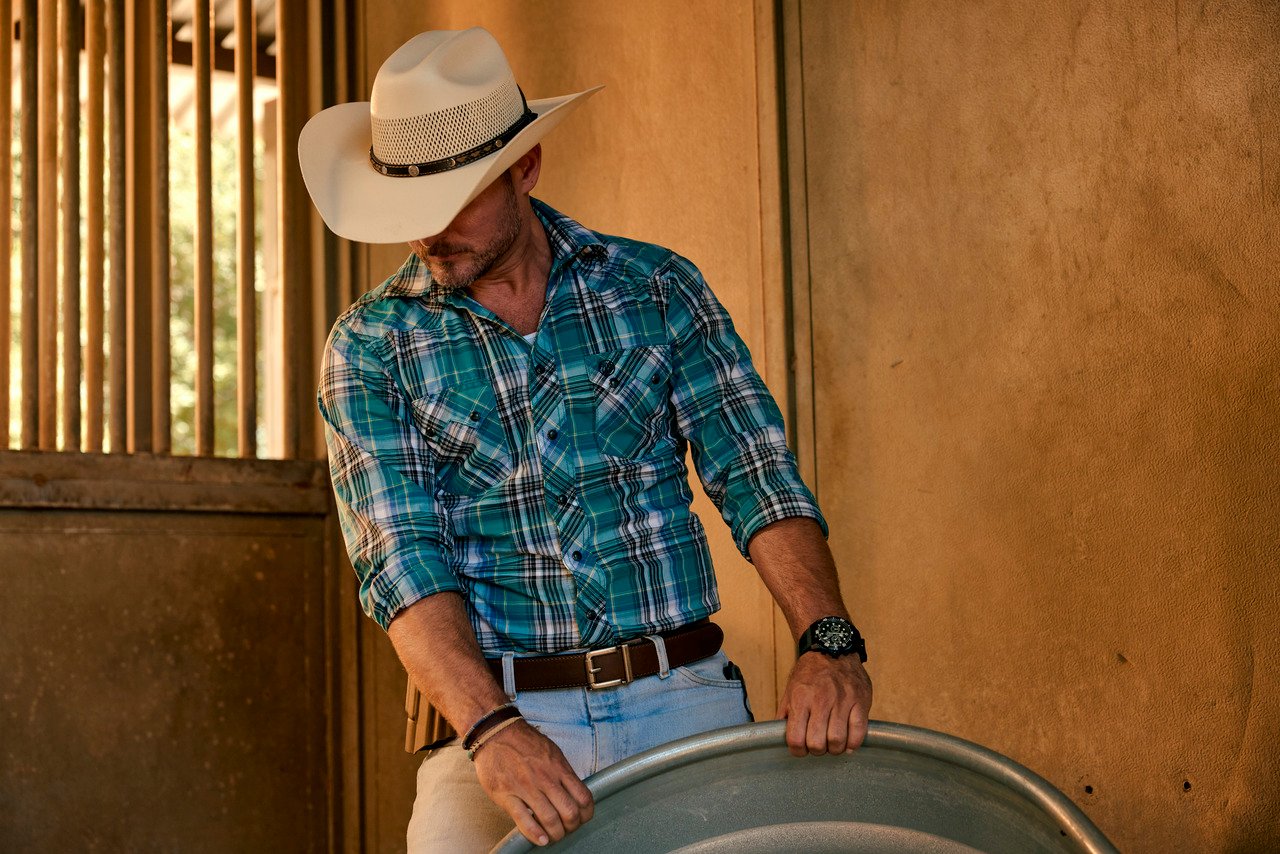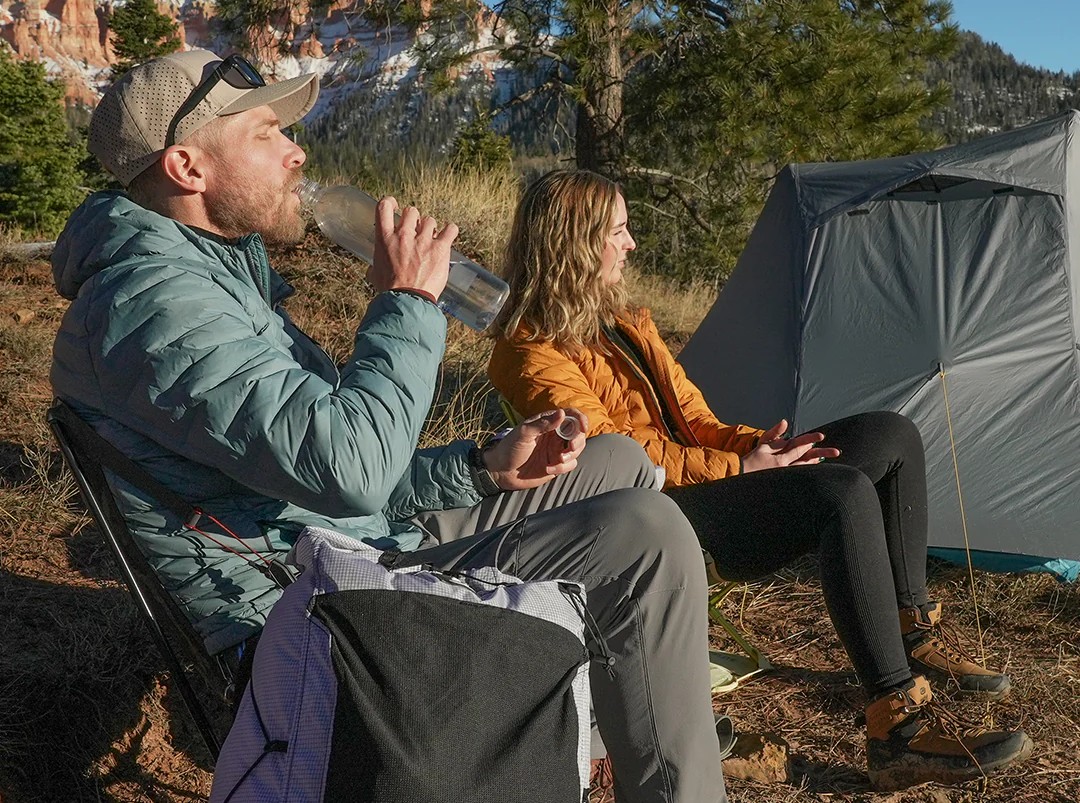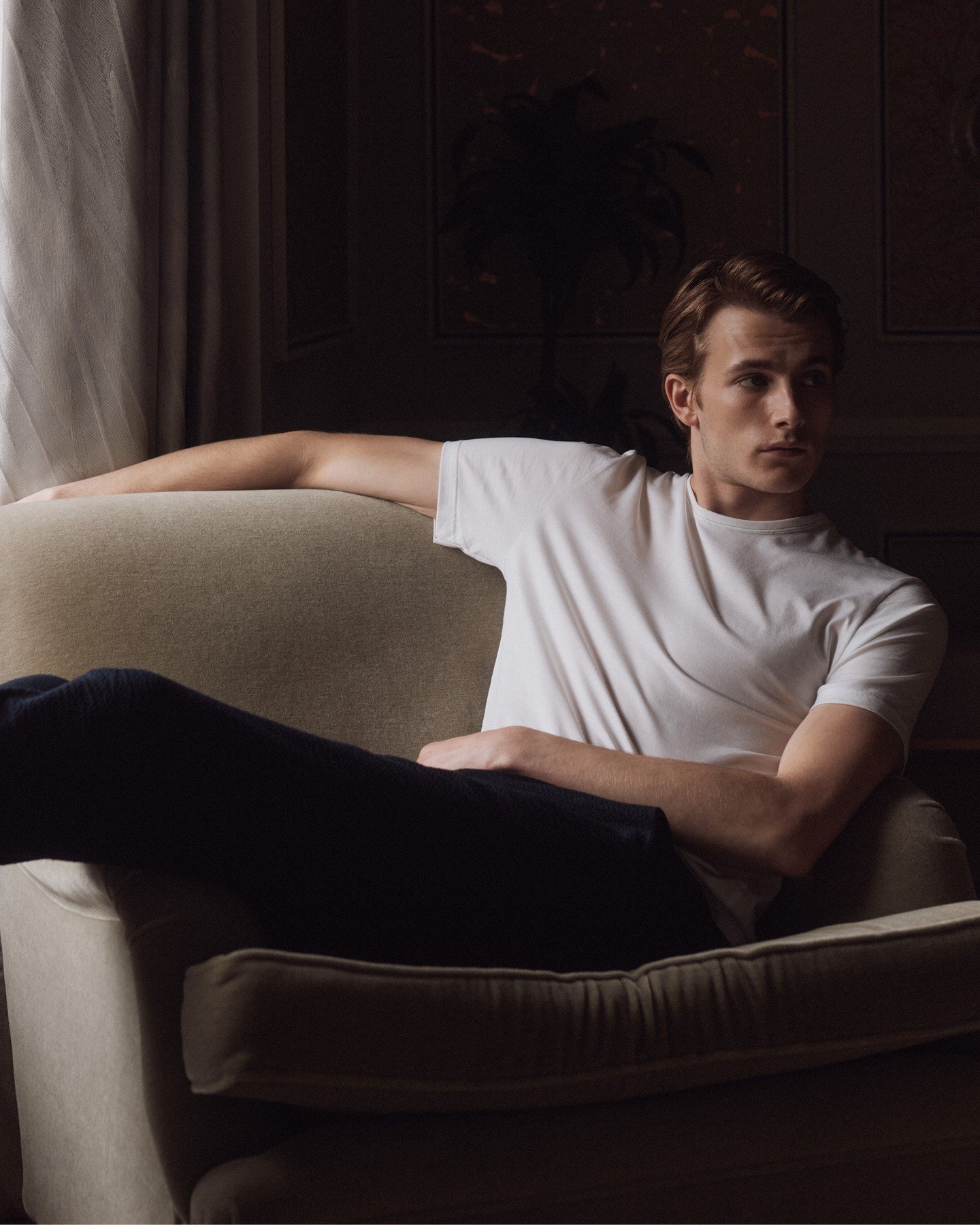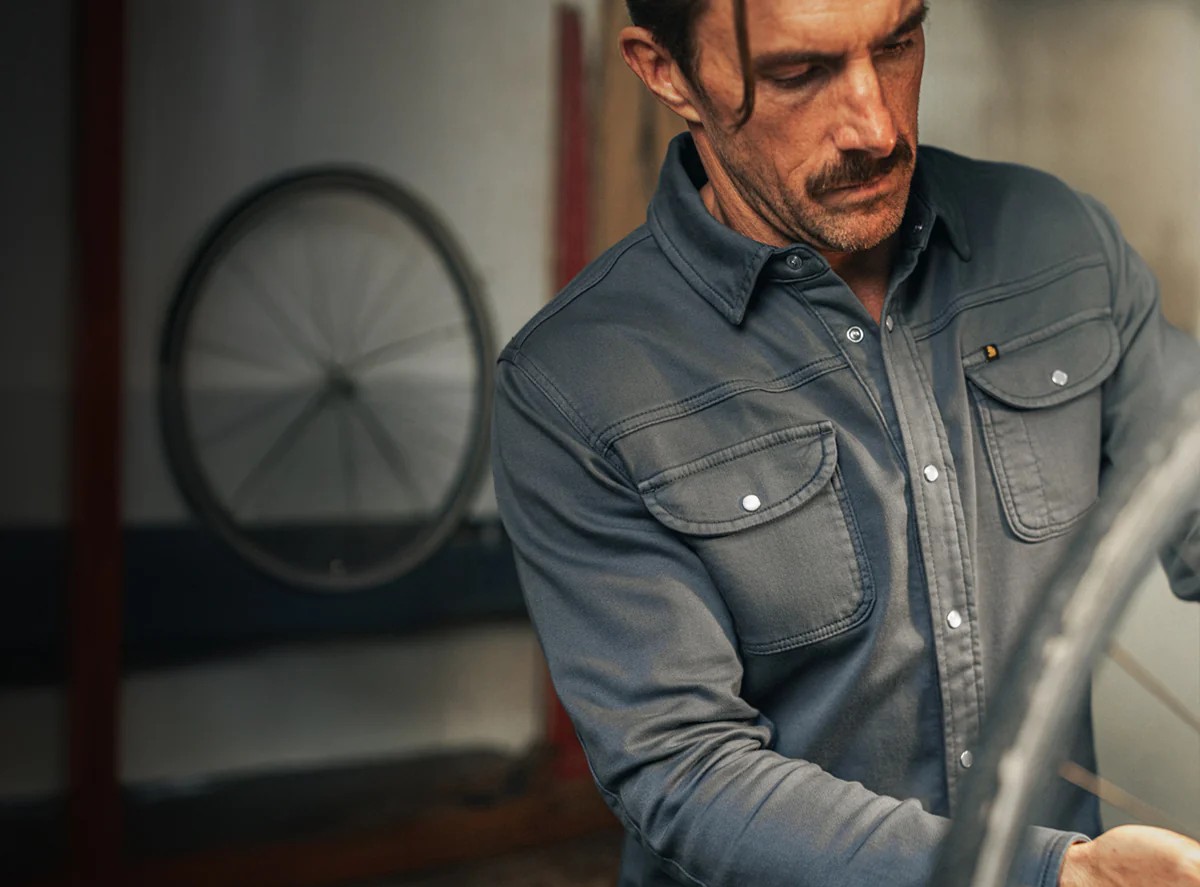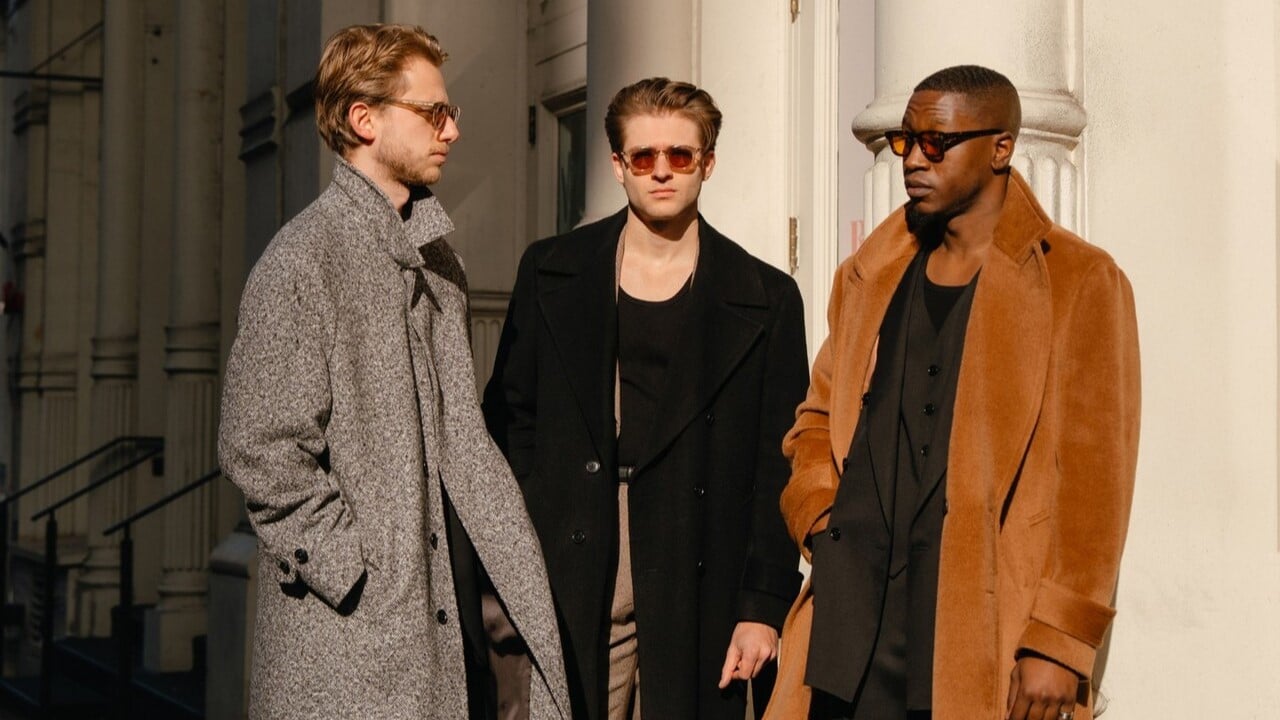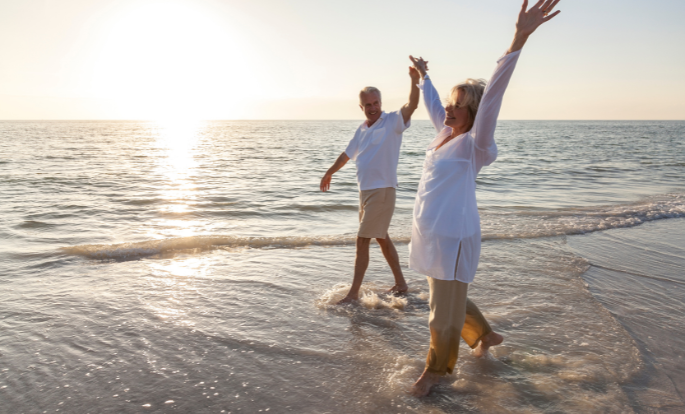The Hats That Make Landman Style Feel Real
Feb 5, 2026Freddie Meadows Interview: The Arctic Surfer Searching For Meaning In The Waves
- Mar 16, 2024
- 0 Comments
547
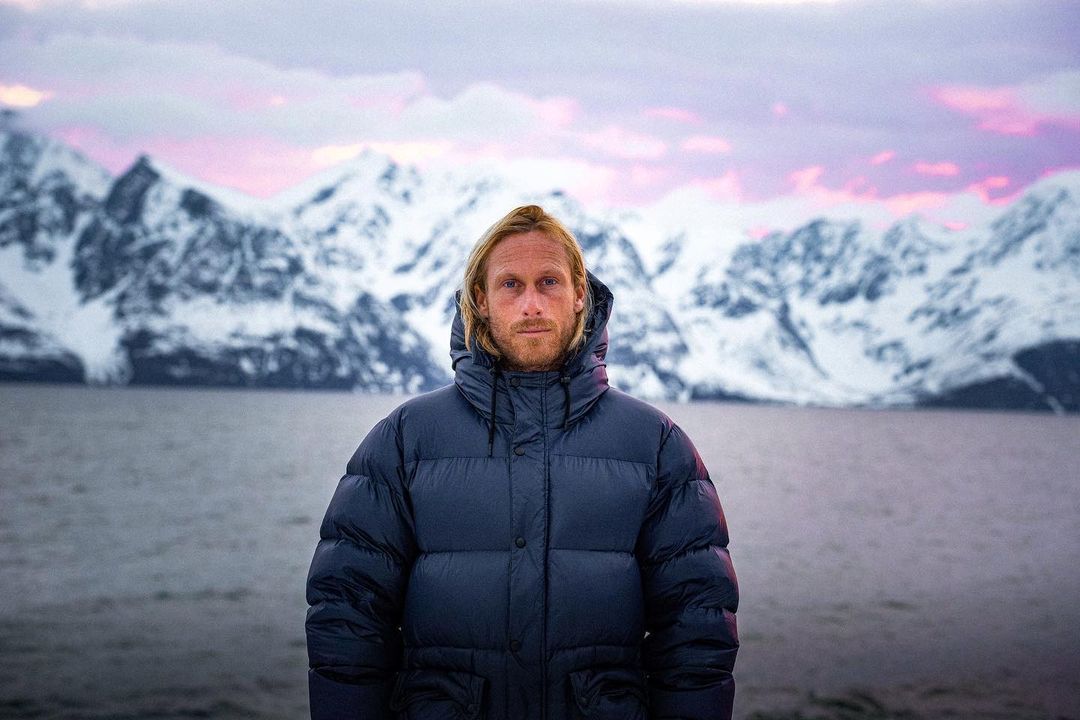
Growing up in Sweden, Freddie Meadows certainly didn’t know that surfing in his native waters, braving -17C temperature with blustering wind chills, would lead him on this unprecedented journey to work with some of his favourite brands such as BMW and Breitling… just for doing what he loves.
The Arctic surfer and Breitling ambassador has certainly come a long way since he first set out into the sea, wearing nothing but his board shorts and oven gloves duct-taped to his hands for some much-needed warmth. But even after many years, the Swedish surfer has maintained his deep connection to the unforgiving wilderness of the Baltic’s more remote corners that he calls home, and reveals there’s far more to learn from surfing than just the riding of the waves.
Of course, Freddie’s surfing journey didn’t start in the literal deep end of Scandinavia’s freezing waters, where the snowfall can sit comfortably on the surface of the water for a good 20 seconds before melting away. But during a family holiday to the south coast of Portugal, Freddie discovered a deep passion for surfing, spending the nights sleeping on the beaches of Portugal’s famous Algarve region mystified by the crashing waves.
Two years later, sitting at home in Skåne on the southern coast of Sweden, Freddie took one of his neighbour’s windsurfing boards that were otherwise sitting idle and put it to good use.
Back then, cold-water surfing wasn’t the popular hobby that it is today; there were no wetsuits specifically designed for the suboptimal temperatures; no high-performance gloves or dive boots for the jagged rocks. People didn’t even consider Europe as a surfing destination beyond the more popular hotspots of Biarritz, Hossegor and of course, Portugal’s Algarve.
It was just Freddie, the only surfer in Sweden, and his wind-surfing board.
“Since then it just felt like ‘This is what I’m doing.’ You know, ‘I’m not I’m not going to I can’t do anything else. This is what I need to do,’” Freddie told DMARGE.
“It wasn’t even the riding of the wave – I was so bad; I could barely ride waves. But, you know, it was just the feeling of being there and doing it and like being out in that environment. And then from then on, it just progressed into a passion.”
I caught Freddie just as he was coming out of the BMW headquarters in Scandinavia, where he had spent the morning in back-to-back meetings with BMW decision-makers about the upcoming electric 5 Series Touring. It speaks to Freddie’s lifestyle these days, carving out a career as one of Scandinavia and Europe’s prominent cold-water surfers and growing a substantial social media following from avid surfing fans.
After some years spent competing in international surfing competitions in places like Peru and Portugal, Freddie returned to Sweden seemingly unimpressed with the surf on offer on his travels. So he decided to rent a car with what little money he had left and search for the waves along his own coastline.
“I had been collecting a list of places I wanted to visit in Sweden to see if these waves existed and within a week, I saw this amazing storm – a big, big storm coming – and I just went to this first area that I wanted to check. We spent four days walking in and out of the forest and two different bays and I just felt so fulfilled by it.”
“And I remember turning up to this one slab of reef, a granite rock, and seeing this wave, it looked like everything I dreamed of and more. I couldn’t have even dreamed up that wave in my imagination. I didn’t even think that that would have existed at home. It looked like something out of Ireland or Western Australia or something but a bit smaller. So I named that wave ‘Valhalla.’”
At that moment, Freddie knew that he didn’t have to travel the world in search of the best surf, chasing perfect waves in perfect places like Hawaii or Australia. Instead, all he had to do was look around him, in the northern coastline of Norway that remains ice-free all year round; or in the Baltics where modern wetsuits and gloves keep surfers in the sea for longer than ever.
Of course, it’s still not without its challenges. In surfing hotspots such as Hossegor in France or even Byron Bay here in Australia, surfers only need to walk out from the beach to ride some of the best waves on offer. But in the Baltics, it’s never quite that simple.
“The weather here is so volatile; it’s constantly shifting up here – so violent and constantly changing,” Freddie continued. “In the morning, you’ll see one update, but in the afternoon, it will be completely different, you know. You can see a forecast in two days that are coming, and then that evening, you’re looking and it’s completely gone.”
Freddie’s commitment to cold-water surfing has forced him to become something of an amateur meteorologist, constantly surveying the transient tides for the best opportunity to brave the waves. He admits he’ll often spend his mornings tracking the weather patterns before setting off in search of the waves, waiting in darkness until the last update comes in at 4 pm when he’ll make a break for it, only to arrive at the wave at 6 am the next morning hoping that the weather hasn’t shifted through the night.
It’s a far cry from the perfect conditions that we take for granted here in Australia.
“It’s a big adventure and I think that has meant so much more to me than any other side of surfing. Then, of course, if that wave’s time’s up, and it’s as good as it was; when you get those moments when you find a wave that blows your mind. I mean – I had a six-second tube up in the north. And just the fact that that wave was there on that coast, and if it was that good anywhere else in the world, it would have 200 guys on it. It’s the best feeling in the world.”
Freddie’s unwavering dedication to uncovering the hidden treasures of his homeland exemplifies a lost spirit of surfing. To be able to spend days on end, patiently waiting for new spots along the Swedish and Norwegian coastline is a testament to being in the present and maintaining a deep appreciation for our own environment.
For Freddie, it’s not just about riding the perfect wave (although those precious 6 seconds certainly help). It’s about the journey itself—the quiet moments of reflection and the innately human experience that cold-water surfing has given him, and in a world where convenience often overshadows exploration, it’s taught him more than any perfect break could.
Publisher: Source link


